Graham Reid | | 11 min read
Jordan Reyne: Passenger (from the album Passenger, 2004)

Jordan Reyne is one of New Zealand’s most challenging and innovative songwriters. Whether it be on albums under her own name or as Dr Kervorkian and the Suicide Machine, Reyne has pushed sonic and lyrical boundaries, pulled together electronica and acoustic instruments, explored noir-narratives and personal emotional states . . . and largely gone without an audience.
Which might explain why she lives in Germany now.
Her albums have been literary and metaphoric, characters are dislocated in time and space. Her journeys in Europe by train inspired her previous album Passenger but her latest album How The Dead Live is a dark and metaphorical narrative about a young woman Susannah Hawes who travels from Britain to New Zealand in 1874. Reyne studied the letters of Hawes who had been promised a new life in a new land, only to find herself in an inhospitable landscape on an unfarmable plot.
Among the characters in the story are Death and History, and a line here and there comes from the screenplay of In My Father‘s Den, based on the novel by Maurice Gee.
So it is little surprise to learn that Reyne -- who has previously had poetry published -- has now moved into long-form fiction.
She has the time to pursue this because, as she says, “Now I’m unemployed, that famous occupation of al musicians. Lots of time to write“.
What is more of a surprise is that she has all but given up music.
You live in Berlin now?
Hamburg actually. Berlin is known as an arty town and Hamburg is commerce, and pretty unfriendly actually. It’s known for its po-faced commercial attitude. It recently tried to compare itself to Venice because it has more canals and bridges than Venice! That was a joke.
There’s a healthy live music scene but bands who play here say crowds are quite unresponsive. Except when Ministry played recently: it was weird because after the support band played they started putting up this fence between the band and the crowd and that sort of sent a message. So the audience started throwing bottles. Al Jorgensen even asked if they wanted them to be there.
Bizarre. Why have you ended up there?
Exactly. I ended up here. I was doing covers in Lubeck and a lot of my gigs were in Hamburg, but it was an exhausting lifestyle and hand to mouth, squatting and that kind of thing. So I wanted a steady job and the obvious thing was teaching English. So that’s it, I was in Lubeck which is an hour from Hamburg.
I’ve moved into Hamburg, and I had a regular job in internet marketing. Now I’m unemployed, that famous occupation of all musicians. Lots of time to write.
I’ve switched my devotions recently and am writing stories, it’s a nice change and I can be quite verbose.
We’ll talk about that in a minute but let’s go back through Passenger and then into How the Dead Live because both deal with not dissimilar themes. Passenger first, what prompted it?
 There was a lot of lost-ness in that in the sense that I was physically and metaphorically trying to figure out my place in the world. It was, cheesily enough, a failed love story which was the catalyst -- but it had been building for a long time, [notions] about me as a musician on the fringes of a very small nation anyway.
There was a lot of lost-ness in that in the sense that I was physically and metaphorically trying to figure out my place in the world. It was, cheesily enough, a failed love story which was the catalyst -- but it had been building for a long time, [notions] about me as a musician on the fringes of a very small nation anyway.
It wasn’t working and that’s a hard position to occupy, and I was wrestling with trying to occupy it. So it was a bit of a nihilistic album in the sense that I couldn’t find any real justification for choosing any one alternative over another.
My preference for doing music? I was looking for meaning and I couldn’t find one, you look to love or drugs but they overwhelm you, and I was looking to be overwhelmed by something. As usual it doesn’t work.
I was trying to prop it up by moving countries for the sake of a romance but that doesn’t actually solve anything.
I changed my context but I didn’t do the emotional groundwork for that to be successful, so I ended up emotionally drifting.
When you travel or move the only thing that remains constant is you.
Absolutely. And in a sense I felt even more isolated. When you’ve grown up in a place there are a lot of connections, but if you end up squatting there’s no internet and all those tendrils you’ve extended to people you care about have all gone. So I was horribly confronted with myself and terribly disappointed. So I came home!
If Passenger is somewhat ambiguous and even amorphous, the adrift tone and so on, for the album How The Dead Live was it helpful to have parameters of a story you were going to tell? The constraints give a sense of emotional boundary.
Yes it did, constraint is a good word because at times you feel like you’ve come to a wall. It’s like walking in the dark and you can put your hand on a wall and walk forward rather than into emptiness. Having got through the process I did find it was helpful. If you have nothing in mind in the first place you can end up meandering and drifting which was what Passenger was about.
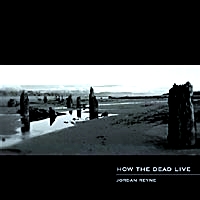 This one, having a character who really did exist, was useful. I can’t give her wings and make her fly, she did some things and didn’t do others.
This one, having a character who really did exist, was useful. I can’t give her wings and make her fly, she did some things and didn’t do others.
I do have poetic licence but can’t go outside certain boundaries.
So this woman Susannah Hawes. You read her letters?
I had said to the Wild Creations people [a group within the Department of Conservation in New Zealand] that I wanted to do something about the area of Karamea [in the South Island] but I didn’t know what and wouldn’t find out until I got there.
I knew about the pioneers and I spent a week in the museum and there were a lot of letters and papers, especially from people who had gone over the hill to Collingwood, which was the major supply line. They wrote things factually with no adjectives. There was one where the horse died and they relayed that so factually and quite unmoved.
Yet I got to Susannah’s and it just resonated. She seemed very honest and there was no stiff-upperlip which a lot of the English brought over. She was a strong woman but when she arrived she was open about what she saw, ‘I was confronted with a scene so bleak it was all I could so to sit on a tree stump and weep.’
The way she said it was really impactive. She was fairly middle class, not poor like some of the other ones, so she had given up something for the dream and hope of an adventure -- in a place which may have been described as a paradise, I don’t know.
But they got to boggy land where half the people starved and had to walk off it -- and was covered in forest.
So she was quite poetic and that’s what made me choose her.
There are so many stories like that in New Zealand, the women who met their husbands in Britain and he said he owned a farm in New Zealand -- but of course they arrive and it is in the middle of nowhere. Some of them survived.
Some of them.
Which is why the figure of Death hovers in How the Dead Live.
Yes, it can be just around the corner and was. You hear some tall tales from the locals down there of course. But one was of a doctor who stopped at a store while the family went on ahead in the horse and cart to the land they had been given. He bought his supplies and rode on, only to see them sinking into quicksand. He went to the shop, bought a bottle of whisky and a gun and was never seen again. I can imagine that being true.
There are stories of people being swept off rocks on their way to school. Death is ever present.
This is kind of album -- dark, narrative, grounded in history but full of symbolism and metaphor -- which we don’t often get, or know what to do with it.
Yes, people don’t know what to do with it, it’s been overlooked a bit.
Everyone looks for a hit single, right?
Yes and it’s not like that, this was part of the battle I fought with myself. The rules have changed and this is now an ‘industry’ so the question was, ‘Am I going to do this for money now, or for love in very difficult circumstances?’. I’m not prepared to do it for money. If it is profit driven everything can only be second best and there is no experimentation. It makes no business sense to go into an area which has no proven market. That stifles innovation.
Creative New Zealand however have been wonderful and have been very supportive.
You have a remarkable video.
Yes, Eloise Coveny made that. I tip her for an upcoming film maker. She’s only 21 or something. I put an ad out and she came back to me and talked about her ideas. I’m a big fan of theory and she was quite philosophical and showed me some of her stuff as well. She did a stunning job. It is so high quality, and that is such a typical West Coast storm. I’m glad we didn’t catch a sunny day and so was she.
But you are writing books now?
Yes, the first one relates to the album and is called Remembering the Dead.
It is set in a forest where the undead walk at night, they try and hunt out the living so they can repeat their tales because they are all scared of being forgotten.
There is a living person who has come to the area and she in the employ of History and she has come to collect the tongues of the dead to take back to History. So there are row upon row of tongues in jars on tables repeating themselves, and she has to select which ones she is going to use.
Through the process of the collection of tongues the main character looses her own narrative thread and so the story is about the disintegration of identity and the retrieving of narrative
Which, if I may be so bold . . .
[Laughs] Yes, it was taking the album in a different direction and there are heaps of the Karamea stories in there, there is the one about the doctor as well.
The central character looses the ability to experience time linearly because she is so busy collecting from the past.
I think they call it ‘slipstream‘. I’ve just got into the science fiction community here and that’s the terminology. Slipstream is neither fantasy nor sci-fi but employ elements of both.
This sounds a natural extension of what drives the album.
I wanted to ramble on with the album but had to stop myself. The book is under consideration and I’m hoping I’ll have word on if it will be published by the end of the year, it’s all written and finished. It’s with a UK publisher.
But there is a big scene over here with conventions and so on, and with the greater population the chances are that you will find a readership.
And your music, what are you doing with that these days?
None at all. I haven’t sung for 18 months.
Do you miss it?
Not at all. The metaphor I use is marriage: at the beginning it is all wonderful and you do anything to put in the extra energy; then its starts to get difficult so you go to marriage counselling and after a few years of that you realise the problems are insurmountable. So you split and have this period of hate, which is the flipside of love. So you go away to lick your wounds because it was too hard.
I spoke to Greg Johnson recently and he said he had made a conscious decision to give up on performing and was going to concentrate on being a songwriter and pitch to others. That seemed sensible to me. He was sick and tired of playing to people who may be indifferent . . . Or throw bottles! He doesn’t feel the need to play live anymore.
Yes, it is practical without giving up the creative side
It seems that if you are writing lyrics why would you not write short stories or novels?
Yes, try the other medium out. Otherwise it’s like playing the violin and only playing Brahms.
So you’ve made a natural move into narrative writing.
I’d had poetry published before but that was so akin to song writing that I never really made the mental leap. But I always loved text and literature so it was a natural move in that direction. Sometimes I miss singing but I don’t feel a great urge to do anything about that.
You can hide a multitude of sins in a song.
I feel I’m a bit too old to be in that [music] lifestyle, I just want to be able to get up early in the morning and do some writing and sleep well and not have a hangover every morning.

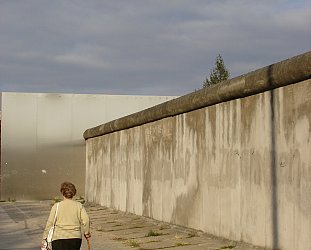

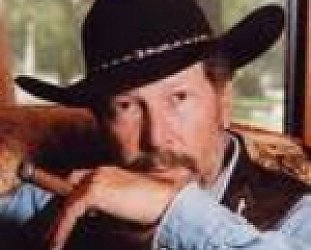
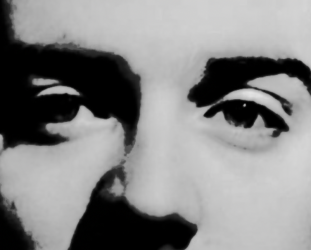
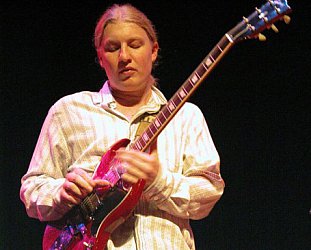

post a comment